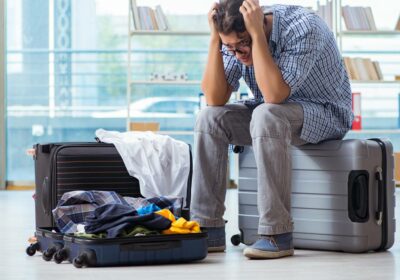Mind Matters with Kyle MacDonald: Battling anxiety in a pandemic world

ADVICE
Q: My partner’s freaking out about Omicron – every time he reads something about it he gets really anxious – or angry. And now he wants to cancel our summer plans because he’s certain it’s going to get into New Zealand and force us back into lockdown. I’m worried too, but not like this. How can I help him?
A: Omicron. It’s hard not to have a response to all the stories of other countries plunging back into lockdowns, spiralling case numbers, rising “R” values and hospitalisation rates. These are all things we’ve come to know well now in this “new normal”.
This year, in this column, I’ve talked a lot about battling anxiety, and how to flourish not languish, in a pandemic world. How not to let anger at the circumstances we find ourselves in overtake our good judgment and rush towards danger from a place of denial.
Balanced against this of course is not getting overwhelmed by anxiety and hiding away forever out of a fear that can become all-consuming.
This balance, between wanting it all to end, versus being paralysed by fear, is the central emotional struggle of the pandemic. And one your partner is clearly really battling with.
The key to that balance is flexibility – and the need to continually embrace the current reality, while accepting the need to keep adapting and changing as the circumstances we find ourselves in change.
Not the circumstances we wish we were in – that’s the path to denial, anger and frustration; nor the circumstances we worry will happen – that’s anxiety, catastrophising and paralysis.
As a country, we have a high level of vaccination, and plans and structures that enable us to travel, take balanced risks and socialise safely.
You may like, or not like how we got here, or the rules we now have, but that doesn’t change them either.
The key to flourishing is to make the best of the situation you find yourself in and keep adapting.
That also means you – because one thing that never works with people who are anxious is to try to push them into doing what they’re afraid of. The normal response to that kind of pressure is to dig our toes in.
So it’s important that whatever you decide to do, that your partner feels willing to do it, or at least willing to challenge himself to do whatever you plan.
In terms of how to help him, you need to work hard emotionally to walk the middle path – between validating the fear, which is real, but not getting dragged down by the intensity, while on the other hand gentle encouragement to focus on the now, and what risks are present in our immediate community.
Avoid the temptation to reassure the anxiety away – “it’ll be fine, there’s nothing to worry about”, as this is simply not true at present, and ultimately unhelpful.
But neither is not living your life.
When talking to your partner, or anyone else for that matter – beware that strong feelings not only make us more likely to resist and dig our toes in but also more likely to go to a black and white, either/or place – this explains the ongoing insistence by some pundits to keep angrily demanding borders open and we all just “get on with it” despite the very real danger that presents.
Overall though, be patient, and gentle. I’ve always been reluctant to call responses to the pandemic “anxiety” – fear is more appropriate, because there is a threat, and it is real.
But it’s the intensity that’s the issue. Getting the volume of his fear down is the aim – and taking a mental break from the news, from the relentless doom that world news presents us with, is perhaps something we all need to do this summer.
Source: Read Full Article
/cloudfront-ap-southeast-2.images.arcpublishing.com/nzme/YQWQJVBWFR4YZCCXQLTXET4R3U.jpg)